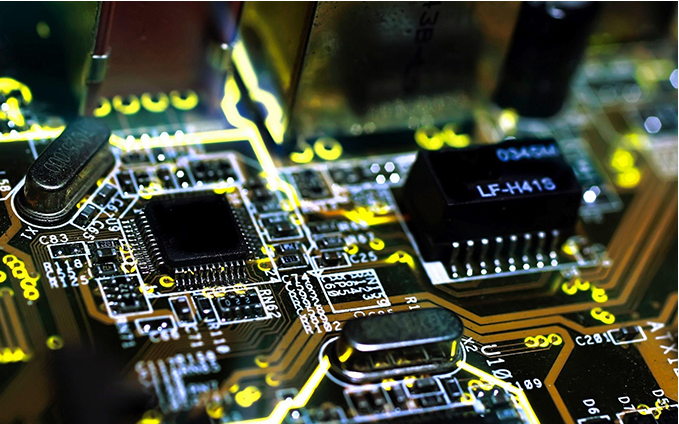In PCB design, wiring is an important step to complete product design. It can be said that the previous preparations are done for it. In the entire PCB, the wiring design process is the highest limit, the skills are the smallest, and the workload is the largest. PCB wiring includes single-sided wiring, double-sided wiring, and multilayer wiring. There are also two ways of wiring: automatic wiring and interactive wiring. Before automatic wiring, you can use interactive to pre-wire the more stringent lines. The edges of the input and output terminals should be avoided adjacent to parallel to avoid reflection interference. Ground wire isolation should be added when necessary, and the wiring of two adjacent layers should be perpendicular to each other. Parasitic coupling is likely to occur in parallel.
(1) There is no signal connected to the ERC report pin:
a. I/O attributes are defined for the pins when the package is created;
b. Inconsistent grid attributes are modified when creating components or placing components, and the pins and wires are not connected;
c. When creating a component, the pin direction is reversed, and the non-pin name end must be connected.
(2) The component went out of the drawing boundary: no component was created in the center of the diagram paper of the component library.

(3) The network table of the created project file can only be partially imported into the PCB: when the netlist is generated, it is not selected as global;
(4) When using multi-part components created by yourself, never use annotate.
2. Common misunderstandings in PCB:
(1) It is reported that NODE is not found when loading the network:
a. The components in the schematic diagram use packages that are not in the PCB library;
b. The components in the schematic diagram use packages with inconsistent names in the PCB library;
c. The components in the schematic diagram use packages with inconsistent pin numbers in the PCB library. For example, for triodes: pin numbers in sch are e, b, and c, and in PCB, they are 1,2,3.
(2) It can't always be printed on one page when printing:
a. It is not at the origin when creating the PCB library;
b. The component has been moved and rotated many times, and there are hidden characters outside the boundary of the PCB board. Select to show all the hidden characters, reduce the PCB, and then move the characters to the boundary.
(3) The DRC reporting network is divided into several parts:
It means that the network is not connected. Look at the report file and use the CONNECTED COPPER to find it.
In addition, try to use WIN2000 to reduce the chance of a blue screen; export the file several times and make a new DDB file to reduce the file size and the chance of PROTEL freezing. If you make a more complicated design, try not to use automatic wiring.
The routing rate of automatic routing depends on a good layout. The routing rules can be pre-set, including the number of bends of the trace, the number of vias, the number of steps, and so on. Generally, explore the warp wiring first, quickly connect the short wires, and then perform the labyrinth wiring. First, the wiring to be laid is optimized for the global wiring path. It can disconnect the laid wires as needed, and try to reconnect. Wiring to improve the overall effect.
The current high-density PCB design has felt that through holes are not suitable. It wastes a lot of valuable wiring channels. In order to solve this contradiction, blind hole and buried hole technologies have appeared, which not only complete the role of through holes. It also saves a lot of wiring channels to make the wiring process more convenient, smoother, and complete. The design process of the PCB board is a complex and simple process. To master it well, a vast electronic engineering design is required. Only when personnel experiences it by themselves can they get the true meaning of it.